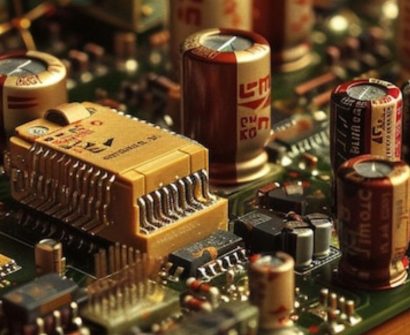
The Scope of Electronics and Communication Engineering
In today’s interconnected world, Electronics and Communication Engineering (ECE) has emerged as one of the most dynamic and promising fields of study. With the ever-increasing demand for advanced technologies and the rapid evolution of communication systems, the scope of ECE has grown immensely. This field plays a pivotal role in shaping our modern world, and its importance is only expected to increase in the coming years. In this blog post, we will explore the vast scope of Electronics and Communication Engineering and why it is a promising career choice.
1. Telecommunication Industry:
The telecommunication industry is at the forefront of ECE. With the ongoing development of 5G technology, the demand for professionals in this field is on the rise. ECE engineers design and optimize communication networks, develop protocols, and create cutting-edge devices to ensure seamless and fast data transfer. They also work on improving network security to protect against cyber threats.
2. Electronics and Hardware Development:
The field of electronics involves designing, manufacturing, and maintaining electronic circuits and devices. ECE professionals work on developing new gadgets, wearable technology, IoT (Internet of Things) devices, and even medical equipment. This industry is vast and offers plenty of opportunities for innovation and growth.
3. Embedded Systems:
Embedded systems are at the core of many everyday devices, from smartphones and smart TVs to household appliances. ECE engineers play a crucial role in designing and programming these systems. They ensure that these devices work efficiently, are user-friendly, and are capable of performing complex tasks. With the rise of automation and IoT, the demand for skilled ECE professionals in this area is substantial.
4. Signal Processing:
Signal processing is a vital aspect of ECE that deals with the manipulation of signals, such as audio, video, and data, to extract useful information. This field is critical in applications like image and speech recognition, medical imaging, and data compression. Electronics and communication engineers work on developing algorithms and technologies that improve the quality and efficiency of signal processing systems.
5. Power Electronics:
Power electronics is the branch of ECE that deals with the conversion, control, and management of electrical power. This is an essential field for the development of renewable energy systems, electric vehicles, and efficient power distribution. ECE professionals work on designing power converters, inverters, and control systems to make these technologies more sustainable and affordable.
6. Robotics and Automation:
The integration of electronics and communication in robotics and automation is transforming industries. ECE engineers design the control systems, sensors, and communication protocols for robots used in manufacturing, healthcare, and even everyday life. This field has significant growth potential as automation becomes more prevalent across various sectors.
7. Research and Development:
ECE is a field that continually evolves. Researchers and development professionals are at the forefront of innovation, exploring new materials, technologies, and methodologies. They work on pushing the boundaries of what is possible in the world of electronics and communication. This is a dynamic and intellectually stimulating aspect of the field.
8. Government and Defense:
Government agencies and defense organizations rely on ECE professionals to develop communication systems, encryption technologies, and electronic warfare capabilities. This sector offers stable employment and the opportunity to work on cutting-edge projects with high security requirements.
9. Entrepreneurship:
ECE professionals with innovative ideas have the opportunity to become entrepreneurs. They can create start-ups or tech companies, developing and marketing their own electronic products or communication solutions.
To know more about VLSI Course , SuccessBridge VLSI training institute. You can begin your VLSI career by enrolling in the placement-assisted live courses available at SuccessBridge We offer various VLSI online courses. We offer Physical Design course, Design Verification course, ASIC verification course , Chip design course many more. Explore VLSI Courses From The Leaders In VLSI Training
In conclusion, the scope of Electronics and Communication Engineering is broad and continually expanding. From telecommunication and electronics development to embedded systems and signal processing, ECE professionals are instrumental in shaping the modern world. As technology continues to advance, the demand for skilled ECE engineers will remain high. This field offers exciting career prospects, a chance to work on innovative projects, and the opportunity to contribute to the development of society. If you’re considering a career in engineering, Electronics and Communication Engineering is certainly a field worth exploring.






